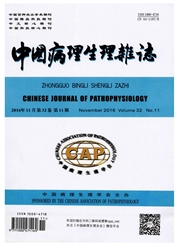

 中文摘要:
中文摘要:
尽管人类是地球的主宰者,但是无论在数量或者多样性方面,地球上的微生物是主流。人体只是许许多多细菌、古生菌、病毒以及真核微生物的支架或者平台罢了。这些微生物栖息在多个人体解剖学上的壁龛里(消化道、泌尿生殖道、呼吸道和皮肤)与宿主形成共生关系,其数量大大超过人体的体细胞和生殖细胞一个或者多个数量级。
 英文摘要:
英文摘要:
Before the technique of advanced high-throughput sequencing comes up, less is known about the human gut microbiota. It has been understood that trillions of microbes, in which 99% are bacteria, inhabit the human gut, forming a complicated ecological community. The gut microbiota has a great impact on human physiology and susceptibility to disease through its integrative metabolic activities and interactions with the host. In physiology, gut microbiota contributes to the host acquisition of nutrition and energy from diets, promoting development and maturation of gastrointestinal tract and immune system, and protecting host from invasion of enteropathogens. In pathology, dysbiosis underlying altered gut microbiota is associated with the susceptibilities to various diseases, including inflammatory bowel disease, type 1 diabetes, asthma, obesity, metabolic syndrome, autism and cancer. Understanding of the factors that underlie alterations in the composition and function of gut microbiota will be helpful in the development of drugs and the design of therapies that target it. This goal is formidable. It is because that the compositions of gut microbiota are immensely diverse, varying between individuals in a population and fluctuating over time in an individual, especially during early development and diseases. Viewing the gut microbiota with an ecological perspective will provide new insights into how to improve our health by targeting this microbial community in chnical treatments.
 同期刊论文项目
同期刊论文项目
 同项目期刊论文
同项目期刊论文
 期刊信息
期刊信息
